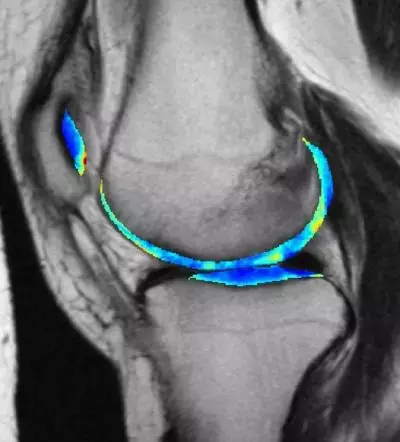- Home
- Medical news & Guidelines
- Anesthesiology
- Cardiology and CTVS
- Critical Care
- Dentistry
- Dermatology
- Diabetes and Endocrinology
- ENT
- Gastroenterology
- Medicine
- Nephrology
- Neurology
- Obstretics-Gynaecology
- Oncology
- Ophthalmology
- Orthopaedics
- Pediatrics-Neonatology
- Psychiatry
- Pulmonology
- Radiology
- Surgery
- Urology
- Laboratory Medicine
- Diet
- Nursing
- Paramedical
- Physiotherapy
- Health news
- Fact Check
- Bone Health Fact Check
- Brain Health Fact Check
- Cancer Related Fact Check
- Child Care Fact Check
- Dental and oral health fact check
- Diabetes and metabolic health fact check
- Diet and Nutrition Fact Check
- Eye and ENT Care Fact Check
- Fitness fact check
- Gut health fact check
- Heart health fact check
- Kidney health fact check
- Medical education fact check
- Men's health fact check
- Respiratory fact check
- Skin and hair care fact check
- Vaccine and Immunization fact check
- Women's health fact check
- AYUSH
- State News
- Andaman and Nicobar Islands
- Andhra Pradesh
- Arunachal Pradesh
- Assam
- Bihar
- Chandigarh
- Chattisgarh
- Dadra and Nagar Haveli
- Daman and Diu
- Delhi
- Goa
- Gujarat
- Haryana
- Himachal Pradesh
- Jammu & Kashmir
- Jharkhand
- Karnataka
- Kerala
- Ladakh
- Lakshadweep
- Madhya Pradesh
- Maharashtra
- Manipur
- Meghalaya
- Mizoram
- Nagaland
- Odisha
- Puducherry
- Punjab
- Rajasthan
- Sikkim
- Tamil Nadu
- Telangana
- Tripura
- Uttar Pradesh
- Uttrakhand
- West Bengal
- Medical Education
- Industry
Increased BMI, poor glycemic control and smoking may increase knee pain in osteoarthritis

IMAGE: THE CARTILAGE IN THIS MRI SCAN OF A KNEE IS COLORIZED TO SHOW GREATER CONTRAST BETWEEN SHADES OF GRAY. view more
CREDIT: KUNDU ET AL. (2020) PNAS
Researchers at May Department of Orthopaedic Surgery, Icahn School of Medicine at Mount Sinai, New York, USA have found in a new study that increased age, increased body mass index, smoking and poor glycemic control were associated with more knee pain in osteoarthritis patients. The results of study imply that Increased BMI, current smoking status and glycemic control are modifiable risk factors associated with self-reported knee pain.
The study has been published in the journal Arthritis care and research.
There is a well‐established link between obesity and knee osteoarthritis, and recent research has implicated diabetes as a potential cause of cartilage degeneration.
The researchers used the National Health and Nutrition Examination Survey (NHANES) database to examine the association between knee pain and various metabolic factors.
They performed a retrospective cross‐sectional study of the NHANES database from 1999 to 2004. The main outcome was any knee pain and bilateral knee pain. Main effects of interest were body mass index (BMI), and hemoglobin A1c (HbA1c). They additionally assessed various patient factors including age, race, poverty, gender and smoking status. Multivariable logistic regression models and interaction terms were analyzed.
In the research Data on 12,900 patients was included. In the main adjusted analysis, the modifiable risk factors associated with any knee pain were: overweight (OR 0.91; 95% CI 0.85, 0.97), obesity (OR 1.54; 95% CI 1.42, 1.66), glycemic control (OR 1.20; 95% CI 1.03, 1.38), and current smokers (OR 1.15; 95% CI 1.05, 1.27), all p<0.05. These same factors remain significant for bilateral knee pain. Subgroup analysis showed patients under 65 years old have a 5% increase in risk of any knee pain as their body mass index increases, but patients 65 years and older have a 10% increase in risk.
The researchers concluded that this study confirms the association of knee pain with increased weight, glycemic control, current smoking and age. Most of these risk factors can be modified in patients with knee pain and should be discussed when providing conservative treatment options.
For further reference log on to:
https://onlinelibrary.wiley.com/doi/abs/10.1002/acr.24423
Dr. Nandita Mohan is a practicing pediatric dentist with more than 5 years of clinical work experience. Along with this, she is equally interested in keeping herself up to date about the latest developments in the field of medicine and dentistry which is the driving force for her to be in association with Medical Dialogues. She also has her name attached with many publications; both national and international. She has pursued her BDS from Rajiv Gandhi University of Health Sciences, Bangalore and later went to enter her dream specialty (MDS) in the Department of Pedodontics and Preventive Dentistry from Pt. B.D. Sharma University of Health Sciences. Through all the years of experience, her core interest in learning something new has never stopped. She can be contacted at editorial@medicaldialogues.in. Contact no. 011-43720751
Dr Kamal Kant Kohli-MBBS, DTCD- a chest specialist with more than 30 years of practice and a flair for writing clinical articles, Dr Kamal Kant Kohli joined Medical Dialogues as a Chief Editor of Medical News. Besides writing articles, as an editor, he proofreads and verifies all the medical content published on Medical Dialogues including those coming from journals, studies,medical conferences,guidelines etc. Email: drkohli@medicaldialogues.in. Contact no. 011-43720751


